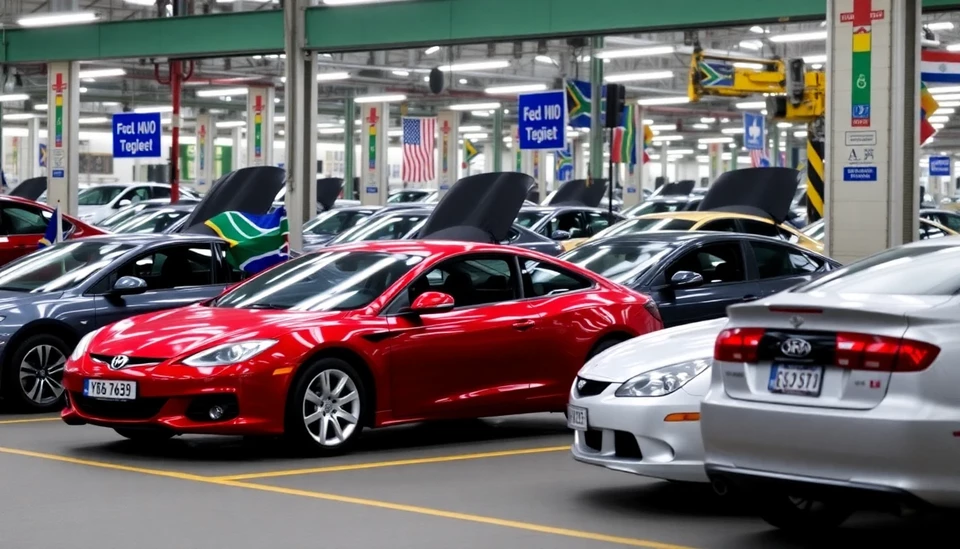
In a bold move that could have significant implications for its automotive sector, South Africa is actively seeking discussions with the United States to address potential tariffs. These tariffs, which could soar to 25%, pose a substantial threat to the country's car manufacturers, who fear that such financial pressures could cripple their operations.
Currently, South Africa exports a variety of vehicles to the United States, a key market for its automotive output. However, talks have intensified as U.S. lawmakers consider imposing these stringent tariffs on imported vehicles, citing national security concerns. This development has raised alarms within the South African government, which views the automotive industry as a critical component of its economy. The sector not only creates jobs but also significantly contributes to the nation’s GDP.
The South African government has indicated that it will emphasize the importance of its automotive exports during negotiations with U.S. officials. This comes in light of a series of discussions and diplomatic engagements aimed at fostering mutual economic interests. Industry leaders in South Africa are concerned that the proposed tariffs could lead to increased vehicle prices in the U.S. market, ultimately harming both South African manufacturers and American consumers who benefit from a diverse range of imported vehicles.
Economic analysts believe that the introduction of such tariffs could lead to retaliatory measures by South Africa, potentially straining trade relations between the two nations. The South African automotive industry is at a crossroads, and its response to these looming tariffs could shape its future significantly. To avoid possible disruptions, South African officials are likely to engage in strategic talks that not only address the tariff issue but also promote ongoing trade partnerships that enhance both economies.
As negotiations unfold, stakeholders are keenly watching how this situation develops, as it holds the potential to influence economic conditions both in South Africa and the broader global market. The outcome of these discussions could either alleviate burdens on the automotive sector or deepen the economic challenges faced by South Africa's manufacturers.
With the stakes so high, the South African government remains hopeful that it can persuade U.S. lawmakers to reconsider the impact of these tariffs and find a more beneficial pathway forward for both countries' economies.
As this situation continues to develop, both automotive experts and economists will be closely monitoring how South Africa navigates these challenging waters to protect its valuable automotive industry.
### Hashtags:
#SouthAfrica #AutomotiveIndustry #USTariffs #TradeRelations #Economy #CarManufacturers #InternationalTrade
Author: Laura Mitchell




